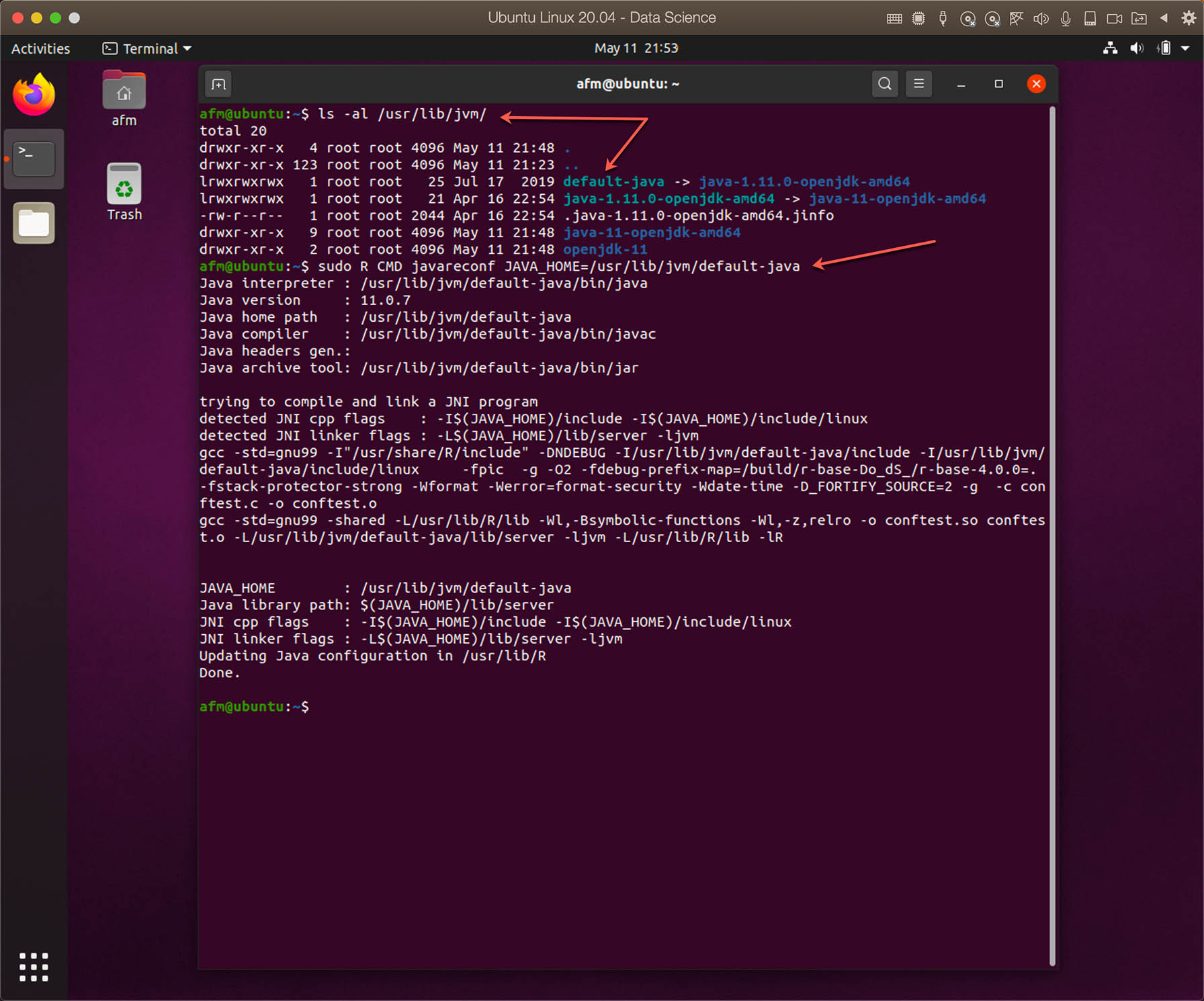

- #Load rjava in r how to#
- #Load rjava in r install#
- #Load rjava in r 64 Bit#
- #Load rjava in r 32 bit#
Then right click on “This PC” icon in desktop\Properties\Advanced system settings\Advanced\Environment Variables\Under System variables select Path\Click Edit\Click on New\Copy and paste paths “C:\Program Files\Java\jdk1.8.0_201\bin” and “C:\Program Files\Java\jre1.8.0_201\bin” (without quote) \OK\OK\OK.Download Java development kit from for 64-bit windows\install it.Download Java from for 64-bit windows\Install it.For some reason, leaving the value blank doesn’t work, even though it should default.
#Load rjava in r install#
Watch the punctuation! The mysterious “.libPaths(),” just tells R to install the package in the primary library directory. This is very important, to make R pick up your PATH changes.Įarlier versions do not work! Mirrors are not up-to-date, so go to the source at. If you have Java in Program Files (x86), that's 32-bit, so you use plain 32-bit R.įrom the Start Menu, Start R / RGUI, RStudio. To be safe, make sure your architectures match.If you have Java in Program Files, it is 64-bit, so you ought to run R64. If so you should find the client/server directory in the same Java "home" dir as the one already on your PATH. (Windows -> "Path" -> "Edit environment variables to for your account" -> PATH -> edit the value.) Wherever yours is, add that directory to your windows PATH variable.

Or C:\Program Files\Java\jre6\jre\bin\client

It resides in a folder like C:\Program Files\Java\jdk1.6.0_25\jre\bin\server RJava, the RJava bridge, will need jvm.dll, but R will have trouble finding that DLL. There are several possibilities, but most have fatal flaws.
#Load rjava in r how to#
Here is some quick advice on how to get up and running with R + rJava on Windows 7 64bit. I have not revisited this issue recently to know if all the steps below are still necessary.) (Note: many of folks in other answers/comments have said to remove JAVA_HOME, so consider that. Experts only: to build rJava from source, you need the -merge-multiarch flag: install.packages('rJava', type = 'source', INSTALL_opts='-merge-multiarch') The binary package from CRAN should pick up on the jvm by itself. Hence the latest working multi-arch setup is to install both jdk-8u172-windows-i586.exe and jdk-8u172-windows-圆4.exe and then the binary package from CRAN: install.packages("rJava") On Win 64, the former installs in C:\Program files\Java\ and the latter in C:\Program Files (x86)\Java\ so they do not conflict.Īs of Java version 9, support for x86 (win32) has been discontinued.
#Load rjava in r 32 bit#
If I try using 32 bit R, I can load rJava fine. My R version is R version 2.13.1 () and I'm using RStudio.
#Load rjava in r 64 Bit#
I have installed the Java JRE (trying both 32 and 64 bit versions) and the JDK (using both 32 and 64 bit). LoadLibrary failure: %1 is not a valid Win32 application.Įrror: package/namespace load failed for 'rJava' )Įrror: unable to load shared object 'C:/Users/me/Documents/R/win-library/2.13/rJava/libs/圆4/rJava.dll': onLoad failed in loadNamespace() for 'rJava', details:Ĭall: inDL(x, as.logical(local), as.logical(now). Package 'rJava' successfully unpacked and MD5 sums checkedīut when I tried to load the library library(rJava) I get the following error: Error. When I run install.packages("rJava")Įverything seems to be fine: Installing package(s) into ‘C:/Users/djq/Documents/R/win-library/2.13’Ĭontent type 'application/zip' length 654936 bytes (639 Kb) I'm trying to install rJava on a computer with Win 7 64 bit.


 0 kommentar(er)
0 kommentar(er)
